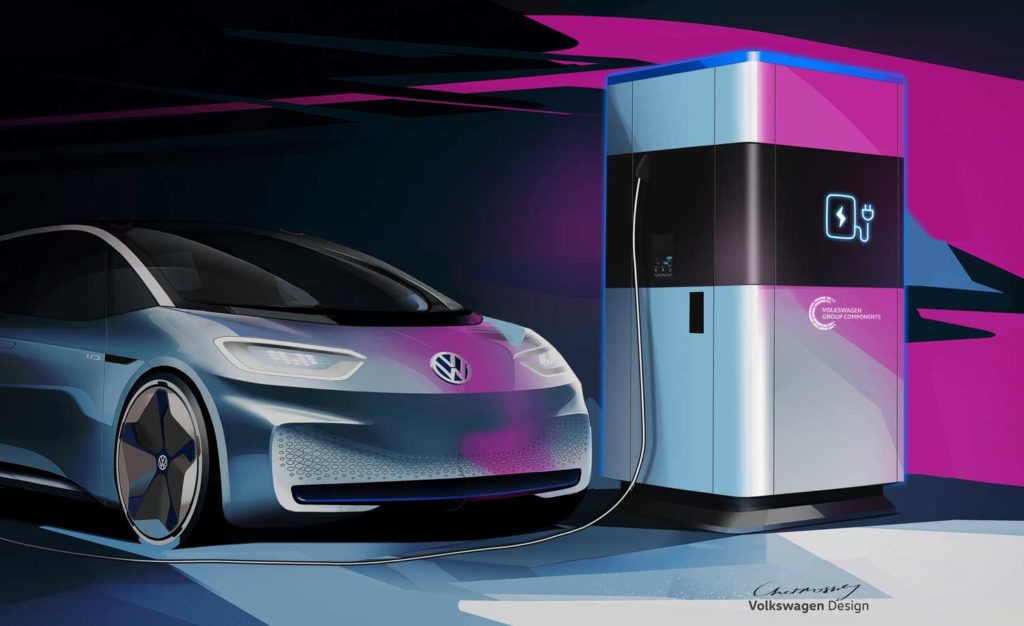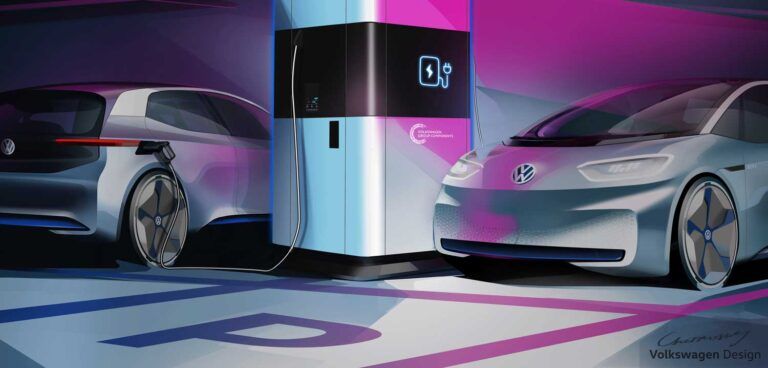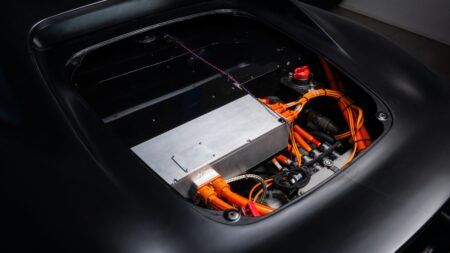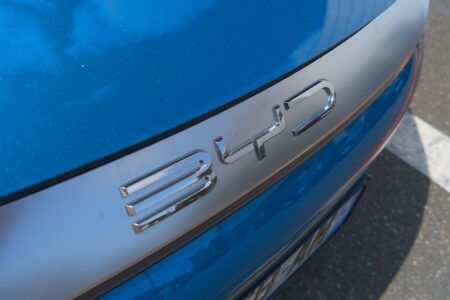Volkswagen has offered a glimpse of the company’s planned mobile quick charging station, which can be set up independent of available mains power supply – for example, in public parking lots in the city, on company premises, or as a temporary charging point at large-scale events.
Similar in principle to a smartphone power bank, the system has a charging capacity of up to 360kWh – enabling up to 15 EVs (such as members of Volkswagen’s new ID family) to be charged.
Featuring quick-charging technology, the process takes an average of 17 minutes. If the energy content of the integrated battery set is less than 20%, the depleted charging station is simply exchanged for a charged one. If, however, it is permanently attached to the power supply (with up to 30kW via alternating current), the battery pack perpetually recharges itself. In case the charging process is based on a renewable power supply, the charging station also allows the temporary storage of sustainably generated power, such as solar or wind energy.
The first mobile quick charging stations will be set up during the first half of 2019 in Volkswagen’s hometown of Wolfsburg, Germany, as part of a pilot project, and will support the expansion of a charging infrastructure in the urban area. As of 2020, the charging station will also be implemented in other cities and communities.
Thomas Schmall, chairman of the board of management of Volkswagen Group Components, said, “The mobile charging stations are a decisive step toward an efficient network of charging points. They can be set up anywhere as required – with or without connection to the power supply.
“This flexibility enables a completely new approach for the rapid expansion of the charging infrastructure. Cities can, for example, find out the most suitable places for a permanent charging point before making major investments in developing the network. In addition, it will be possible to set up a large number of charging stations temporarily – exactly when and where they are needed.”
The mobile charging stations can be set up at defined points, for example, spread out across a city. The flexible locations can be easily found via the internet or apps. Each charging station enables DC quick charging with up to 100kW. In addition to electric cars, e-bikes can also be charged. Up to four vehicles can be charged simultaneously: two with DC and two with AC connections.
“Our mobile charging stations offer a further crucial advantage,” said Mark Möller, head of technical development at Volkswagen Group Components. “It is only when an electric car is charged with sustainably generated power that it can claim CO₂-neutral mobility. Our charging station is the first to offer the possibility of temporarily storing sustainably generated power.”
The mobile charging column is based on the battery pack of the Volkswagen Group’s Modular Electric Toolkit (MEB). On the one hand, this offers the advantage of quick scalability and, on the other hand, the charging station allows batteries from electric vehicles to have a second life. If a vehicle battery has a defined, reduced residual capacity, it is exchanged. If this battery subsequently passes a thorough analysis, it can be reused in a mobile charging station.






